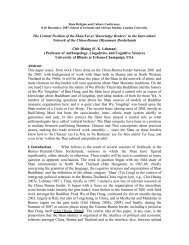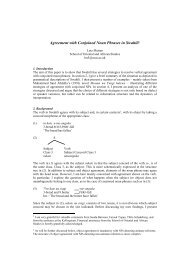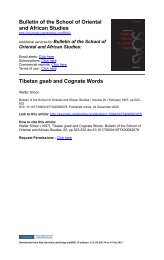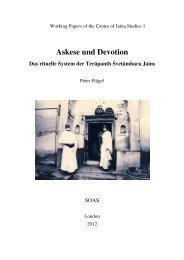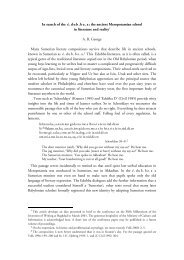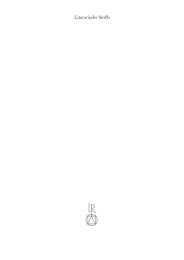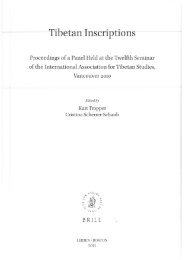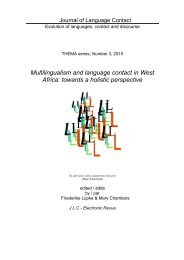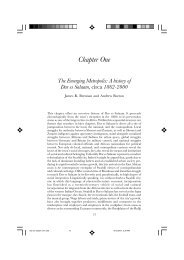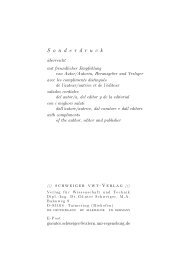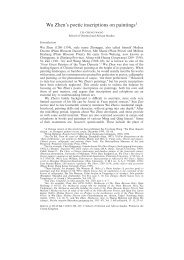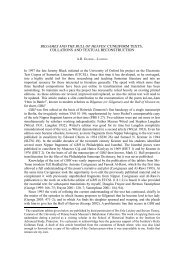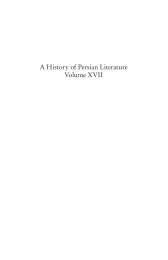Download (549Kb) - SOAS Research Online
Download (549Kb) - SOAS Research Online
Download (549Kb) - SOAS Research Online
Create successful ePaper yourself
Turn your PDF publications into a flip-book with our unique Google optimized e-Paper software.
90 Warfare and Poetry in the Middle East<br />
verb ‘to sing’, it marks heightened negative emotion and has the narratological<br />
function of calling forth a response or intervention from our<br />
informant, Puhanu. In the first case of ‘singing’, where we cannot be sure<br />
that the ‘song’ is in verse as it is not well preserved, he reacts by continuing<br />
his advocacy for the storm-god of Aleppo. In the second case, where the<br />
song is in verse, it is not clear exactly how he reacts, due to the tablet’s<br />
fragmentary state. In both cases the use of ‘song’ accompanies failure or<br />
demoralisation, much like the ‘Song of Zababa’ sung by Lariya and his<br />
sons in the Uršu text. 62<br />
CONCLUDING REMARKS<br />
We have seen that the Hittites used poetry, or at least artistic language, for<br />
various purposes. Whenever poetry clearly occurs they refer to the composition<br />
as a ‘song’, a term that is usually reserved for imported literary epic.<br />
These long compositions treat broad moral issues in an epic manner, with<br />
human action writ large against a divine foil. Their purpose can be to<br />
entertain, humorously as well as by shock, to inform about the natural<br />
order of things and its historical divine sanction, and to elevate their audience<br />
through comparison with a divine court.<br />
By contrast, the use of artistic language in native contexts serves quite<br />
different functions. In the soldier’s oath we saw the rhythmic and repetitive<br />
prose of incantation expressing analogies that are directly enacted in<br />
ritual performance in front of the participants. The imagery stems partly<br />
from the typical repertoire of analogy used to prevent the breaking of<br />
an oath in treaty-contexts, and partly from the specific military field,<br />
where manliness and armament are among the attributes to be lost by the<br />
oath-breaker.<br />
In the ‘Siege of Uršu’ text, a song ostensibly criticising pusillanimous<br />
generals uses similar imagery, and possibly refers to an inversion of just<br />
such a ritual as that found in the ‘Soldier’s Oath’. Here the inefficacy<br />
of the generals is accounted for by their alleged effeminacy. It is not to<br />
be expected that the singers of the song are implying that the generals<br />
have broken their oaths to the king. ‘Song’ we find once again in the<br />
context of a major military expedition in Syria. It is the critical and negative<br />
stance of such ‘singing’ that surprises the modern, Western audience<br />
in these contexts. However, much in the tradition of the lyric poet, the<br />
song presumably lends emotional intensity to the utterance: ‘song’ as a<br />
response to crisis.<br />
03_Warfare&Poetry_Ch3_073-098.indd 90 06/02/2013 10:15



